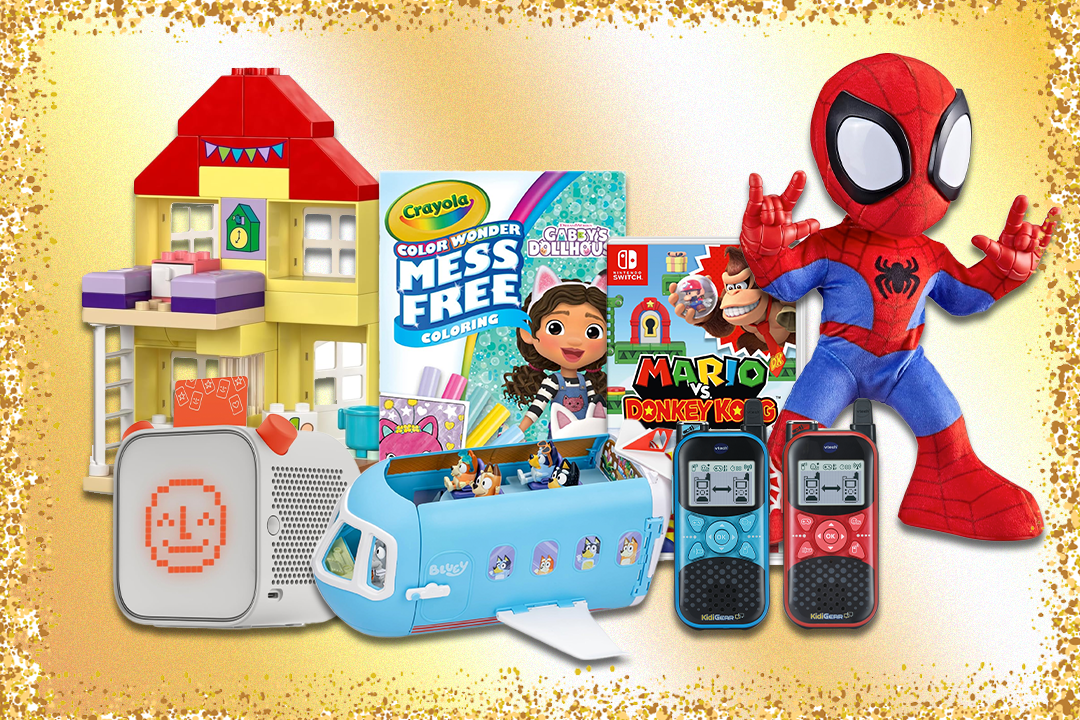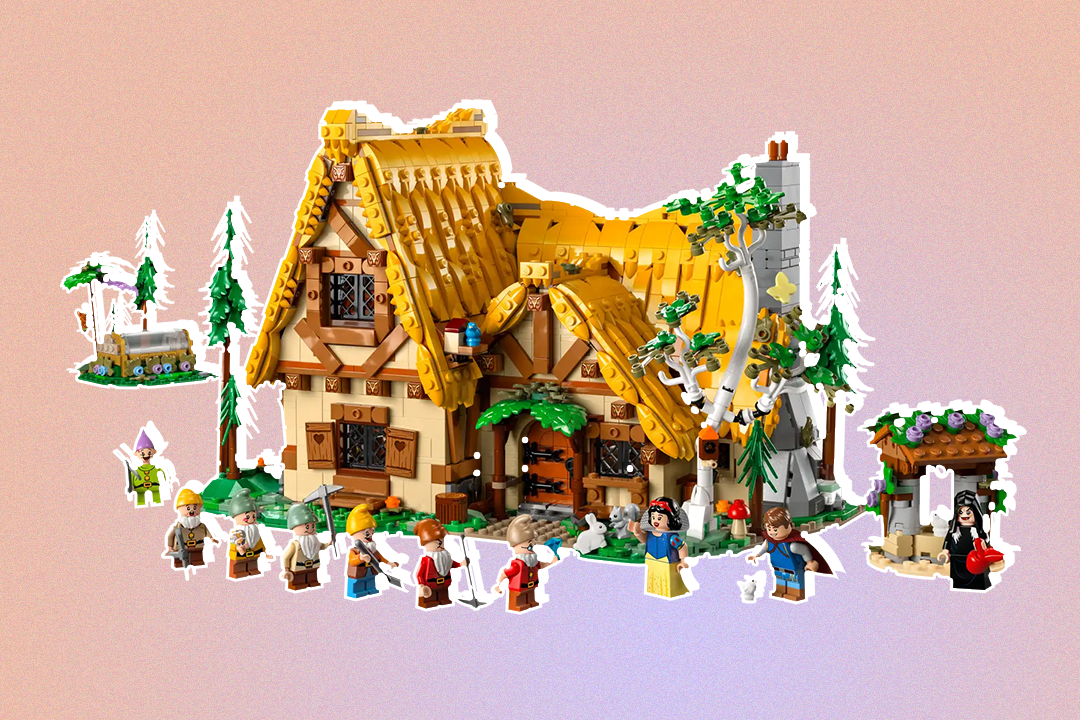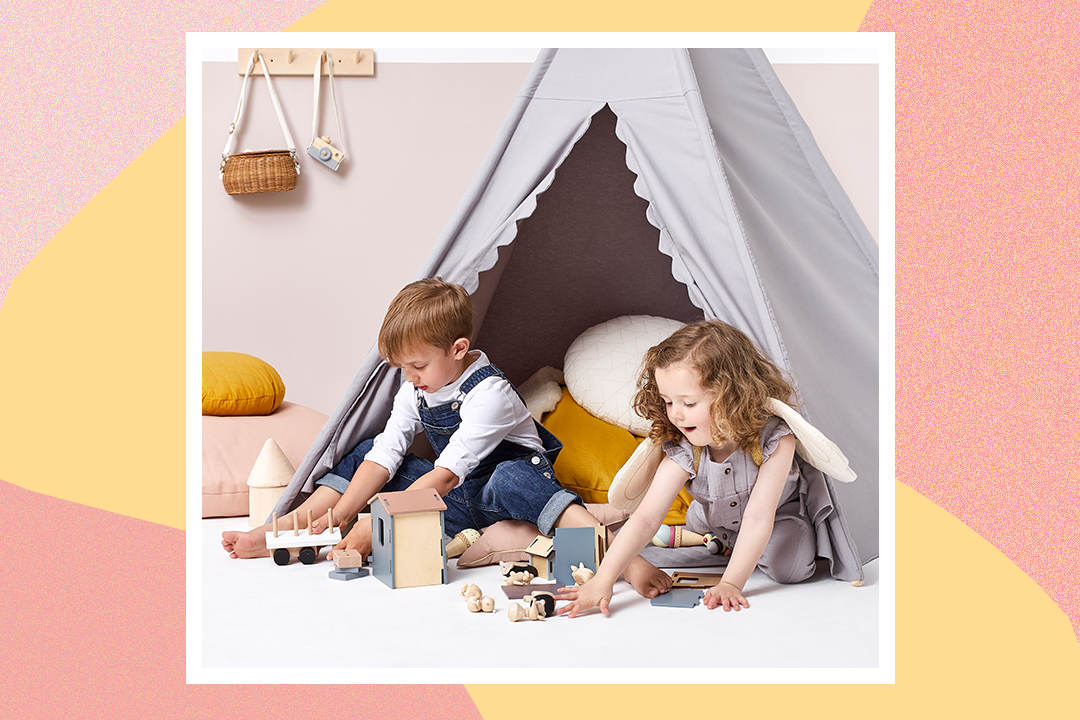
The Independent's journalism is supported by our readers. When you purchase through links on our site, we may earn commission. Why trust us?
13 best family board games for hours of fun, from cult classics to new releases
From fun quizzes to head-scratching strategy games, these will delight a crowd
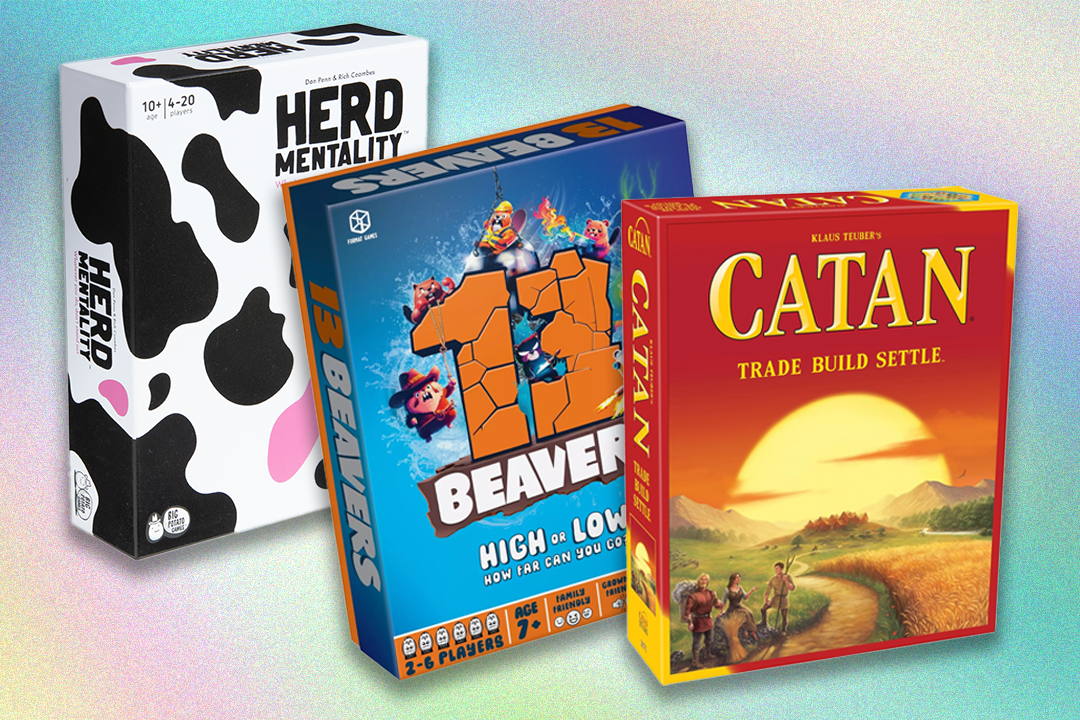
Nothing beats a good board game to get everyone off their phones and round the table. But when it comes to picking what to play, it can be tricky to please all tastes – and all ages. Particularly with family games, and especially if you’re hosting a big gathering like Christmas, the pressure’s on to find something that’s just right.
Thankfully there are plenty of board games that will keep even the pickiest crowd engaged, whether you want to play something fun and fast with minimal set-up, or you’re planning an all-nighter.
Of course, everyone’s heard of classics like chess and Scrabble – but there are ways to give even the most time-tested games a modern twist, and plenty of emerging games competing to become your new favourite.
We’ve tested a huge range of board games to see which ones really cut the (Colonel) mustard, so you can round up your nearest and dearest, open the snacks, and get stuck in.
How we tested
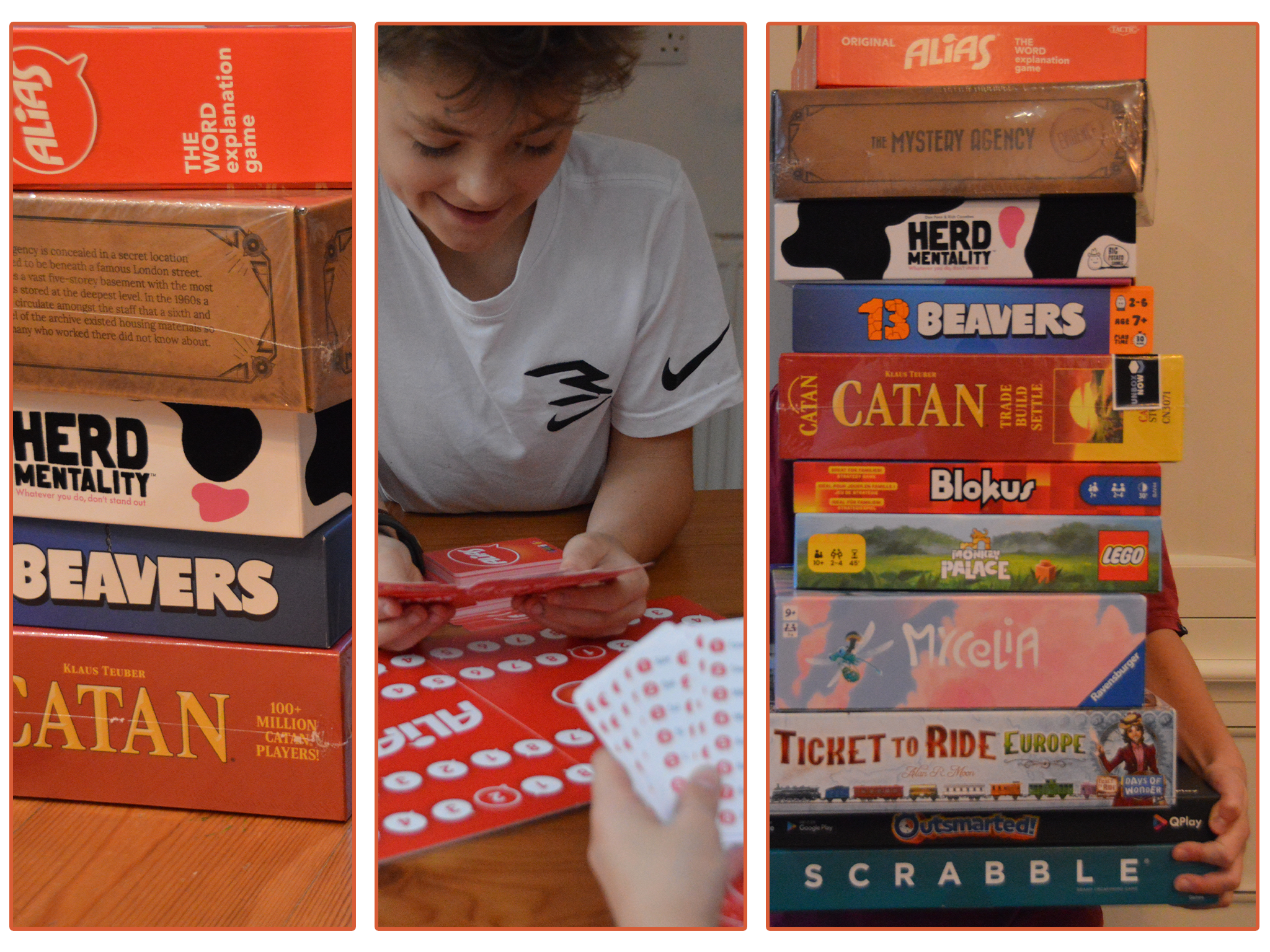
We turned our kitchen into a board game café and worked our way through a mountain of games over the course of several weeks. To test the family friendliness of each game, our testers ranged from children to grandparents, and we only selected games that were enjoyed by all.
To whittle down our shortlist, we looked for games that were still enjoyable after the first game – no one-hit wonders here – and didn’t baffle everyone with overly complex rules.
Bonus points were awarded to games that could be played within minutes of opening the box because nobody wants to spend hours faffing about when victory is at stake.
The best family board games for 2024 are:
- Best overall – Outsmarted: £19.99, Amazon.co.uk
- Best budget buy – Blokus: £14.99, Amazon.co.uk
- Best for an all-night game – Catan: £40, Amazon.co.uk
- Best for big groups – Herd Mentality: The udderly addictive family board game: £19, Amazon.co.uk
- Best for kids – 13 Beavers: £19.99, Amazon.co.uk
Outsmarted

- Best: Overall
- Board game style: Quiz
- For groups of: 2-24 players
- For ages: All
- Extras needed: Phone, tablet, or Windows laptop
- Why we love it
- Questions are always up to date
- Take note
- You need to download an app
If you’re partial to a TV quiz show you’ll love Outsmarted, which is played on a physical board but links up with an app. Apart from installing and activating the app, there’s no lengthy setup – roll the physical or digital dice, move your character on the board, and select a corresponding quiz question on the screen. The aim is to eventually land on and correctly answer ring questions, a bit like getting a cheese in Trivial Pursuit.
We cast our phones to the TV so that everyone could see the questions, and there were 10,000 of them across 10 categories. You can also buy expansion categories covering everything from Game of Thrones to famous logos, starting from a very reasonable £1.99.
Each player’s age category is set before the game starts, so kids get given appropriate questions vs teens and adults. And because questions are constantly updated, topical events popped up – a huge difference to similar games we tested, where references quickly dated.
We used one device between the four of us, but you can link up to six devices and play with remote players using the virtual board. We love this game’s capacity to be expanded, the fact it works just as well with two players as it does with teams and the always-up-to-date questions. A great all-rounder for families, especially extended ones.
Blokus
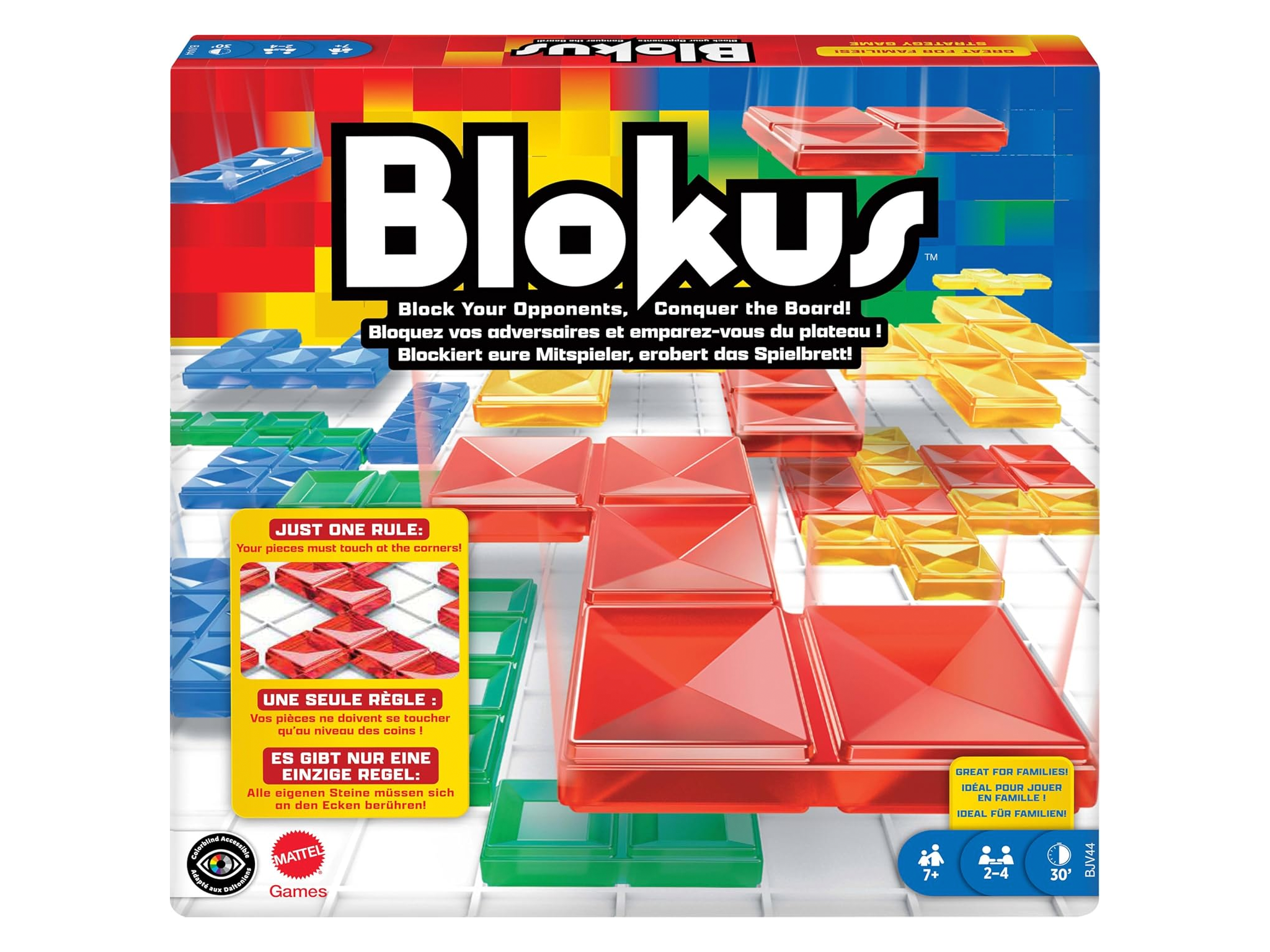
- Best: Budget buy
- Board game style: Abstract strategy
- For groups of: 2-4 players
- For ages: 7+
- Extras needed : None
- Why we love it
- It’s easy to pick up
- Take note
- It won’t work for a family of five
If you don’t have the time or patience to read through pages of rules before you start, and there are only four of you playing, try Blokus. Each player takes 21 blocks in their chosen colour. The
aim is to get as many of your blocks on the board as possible before the game ends – when someone else runs out, or nobody can find a space to lay theirs.
There are only a couple of rules and a bit of strategy – our testers enjoyed blocking other players – but nothing too taxing. With some adapting this one can also be played with two or three players, although we found it definitely works best with an even four.
Catan
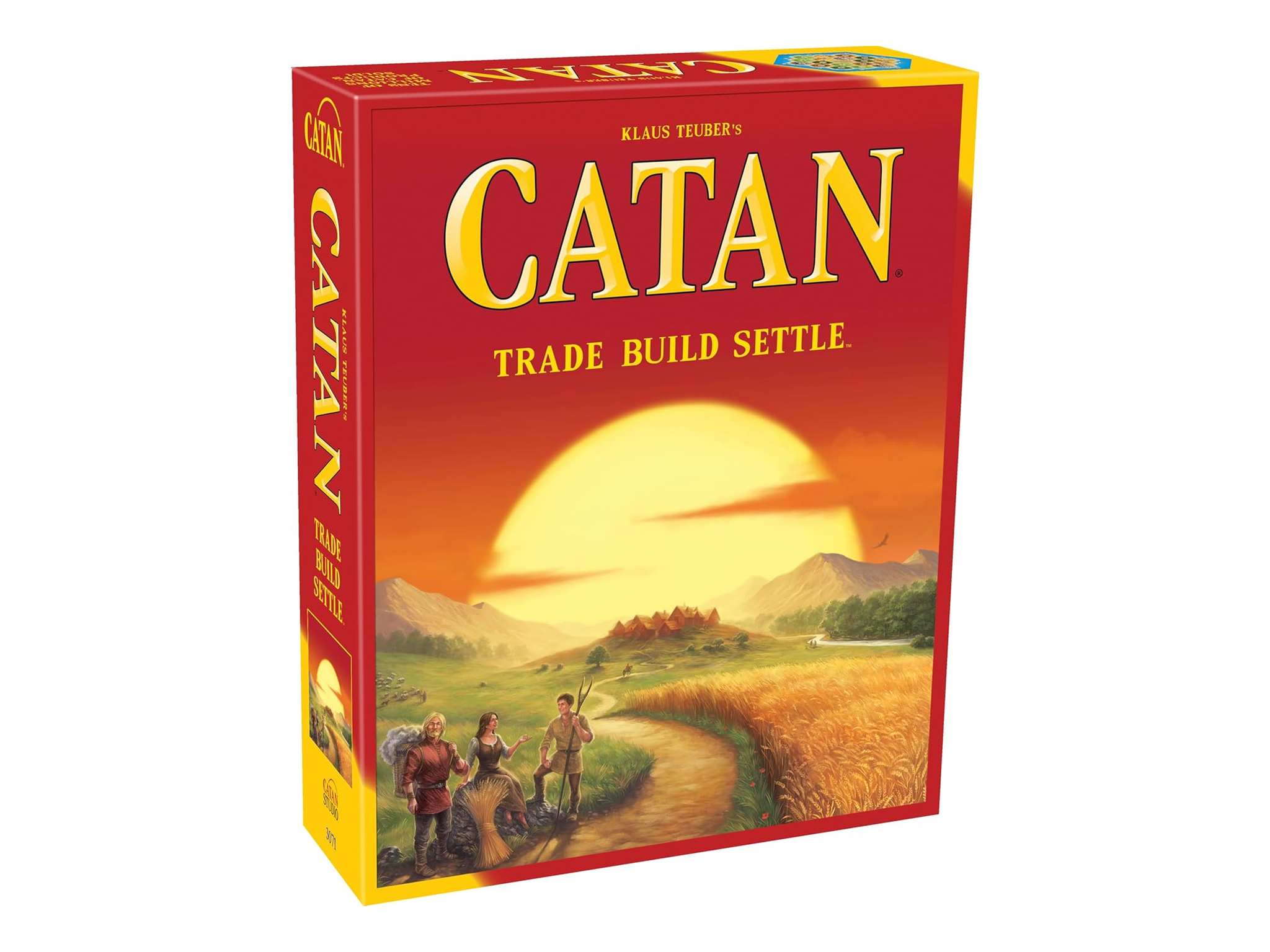
- Best: For an all-night game
- Board game style : Trading
- For groups of: 2-5
- For ages: 8+
- Extras needed : None
- Why we love it
- Gameplay is different every time
- Take note
- Games are pretty long
If you’re after a much more traditional board game that will take all evening to play, Catan is an excellent option. Games take at least an hour – but in our case, several.
Players take on the role of settlers and the idea is to build settlements and cities to score Victory Points and eventually win the game. To do so, players trade resources – so you can help and hinder fellow players depending on which resources you’re prepared to part with, setting the ‘price’ according to how desperate they are for what you’ve got in your hand.
Although it never feels boring or easy because of the level of strategy involved, you can buy expansion packs to switch things up – we loved the Seafarers expansion pack (£49.99), which allows you to branch out into the water.
Herd Mentality: The udderly addictive family board game
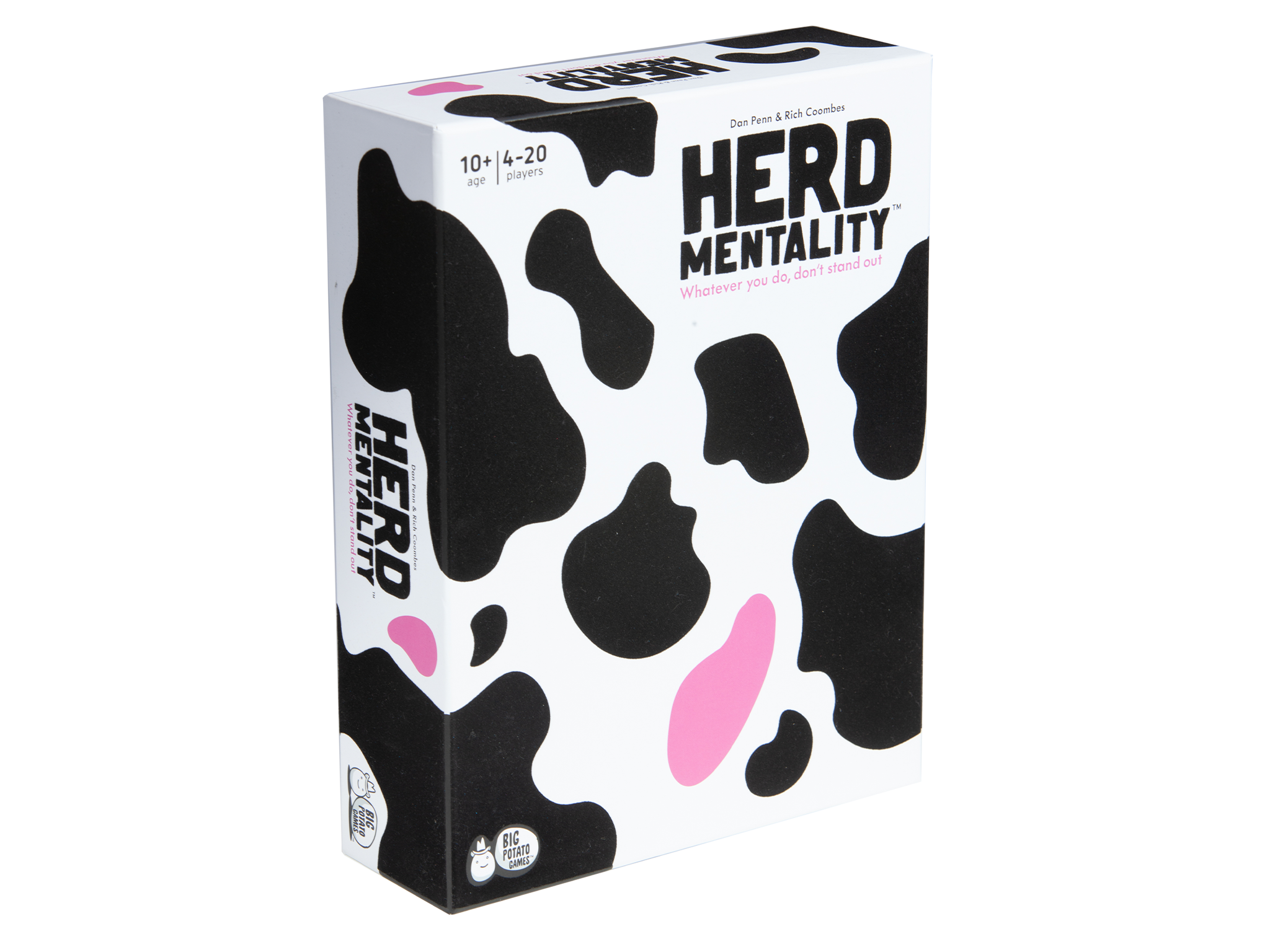
- Best: For big groups
- Board game style: Party
- For groups of: 4-20
- For ages: 10+
- Extras needed : None
- Why we love it
- It’s great, silly fun
- Take note
- It can get a bit noisy
A complete departure from Catan, Herd Mentality is the one to pull out at parties. Granted, it’s part card game and part board game, but we enjoyed it so much that it deserved a place on our list.
The aim is simple – the whole group is asked a question, and the idea is to write down the same answers as your friends. So far, so Family Fortunes. But in this game you win cows if you’re in the majority, or the squishy pink cow if you’re not – which you’ll want to palm off on another player ASAP if you want to win.
This game generates lots of laughter and works better with a big group, so it’s ideal if there are too many of you for a serious sit-down game.
Harry Potter Final Challenge collectors’ chess set
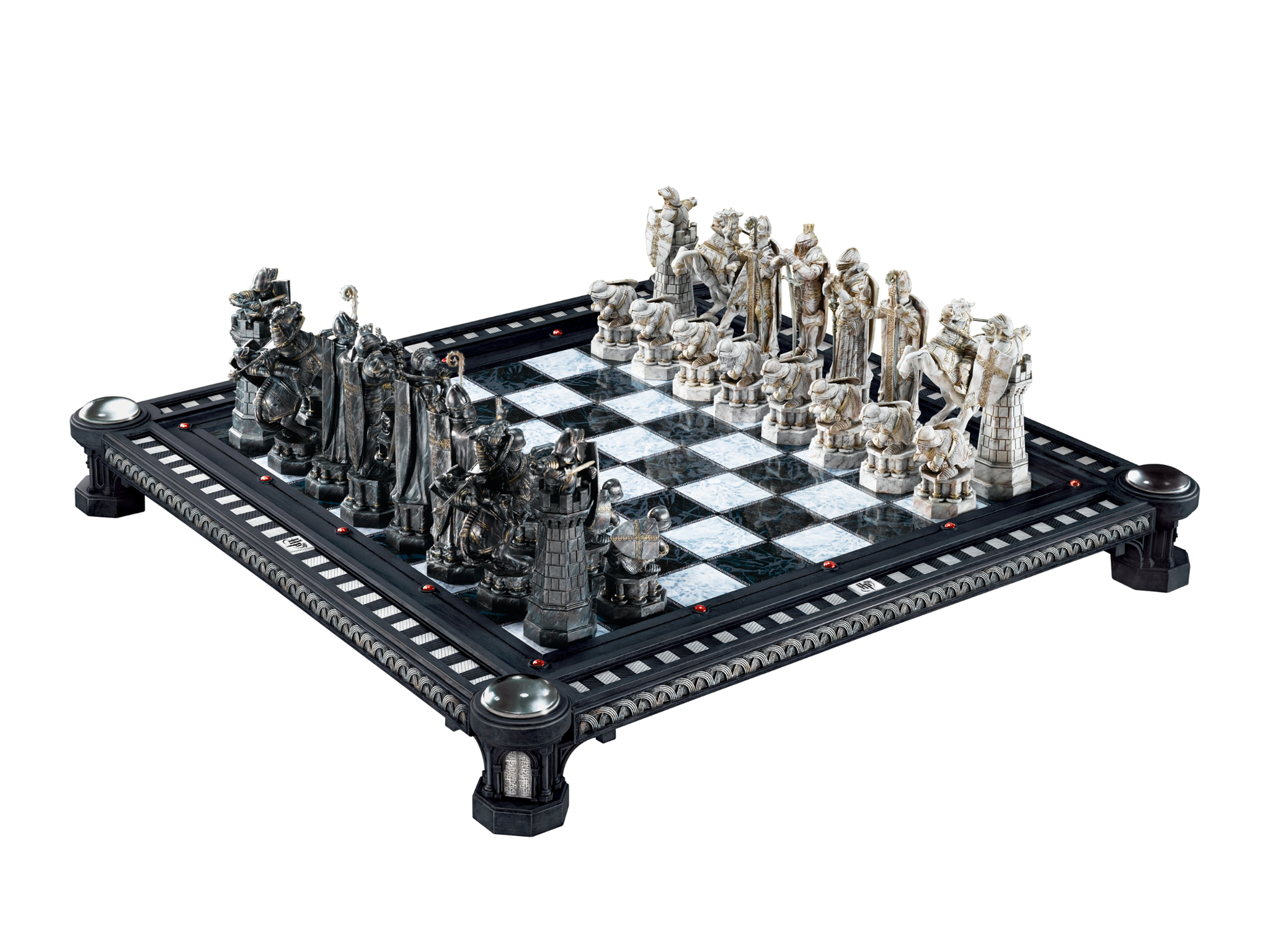
- Best: Collectors’ board game
- Board game style: Abstract strategy
- For groups of: 2
- For ages: All
- Extras needed: Adequate space
- Why we love it
- It feels suitably extravagant
- Take note
- It’s too big for a coffee table
There are chess sets, and then there’s the Harry Potter Final Challenge chess set from The Noble Collection. A recreation of the supersized version featured at the end of Harry Potter and the Philosopher’s Stone, this ornate die-cast zinc board measures up to 50x50cm, with intricately detailed, oversized solid resin pieces.
It certainly made an impression on our testers from the moment they opened the box – the whole thing is as theatrical as you’d hope from the price, and the sheer extravagance of the set made for a very special experience when playing. It’s not small, and we found we either had to play it on the rug – it’s raised off the floor by legs – or on the kitchen table rather than the coffee table. But it would make an impressive gift for any Harry Potter fan or serious collector.
Lego Monkey Palace
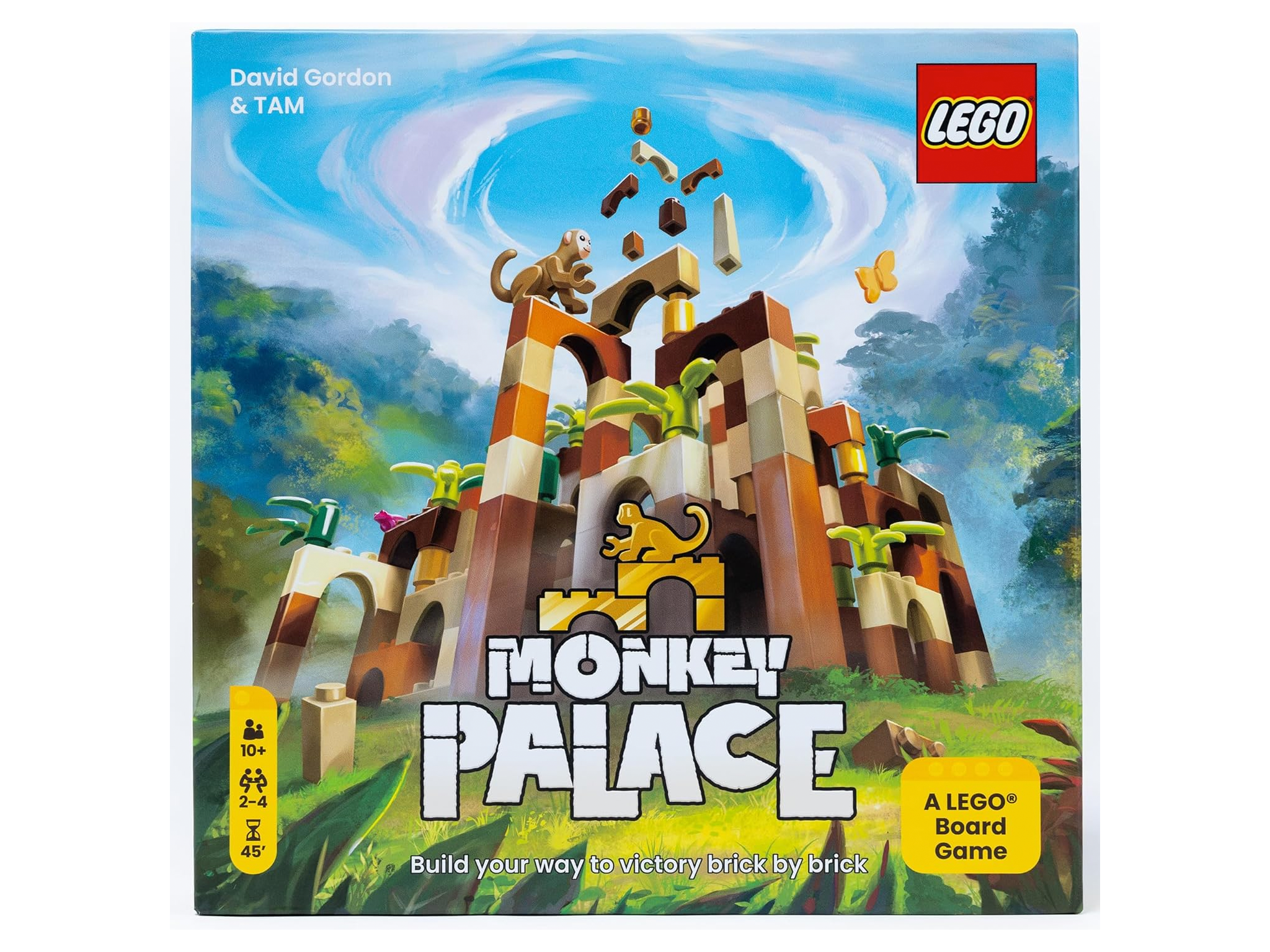
- Best: For lego-lovers
- Board game style: Strategy
- For groups of: 2-4 players
- For ages: 10+
- Extras needed : None
- Why we love it
- You get to play with Lego
- Take note
- It’s really easy to lose the pieces
Our younger, Lego-loving testers were particularly keen to try this new game from Asmodee. Monkey Palace is a jungle-themed game for two to four players where you work together to build staircases out of Lego bricks, while also working on your own to earn the most Banana Points and win the game – so it’s both collaborative and competitive.
It took us a little while to read through the rules, but it’s relatively simple once you start playing and there are a couple of cards you can add in to make things more interesting once you’ve got the hang of it. We liked that there are four different ground maps – which you lay at the start and build on – and the final creation is different each time.
Scrabble & Scrabble Together
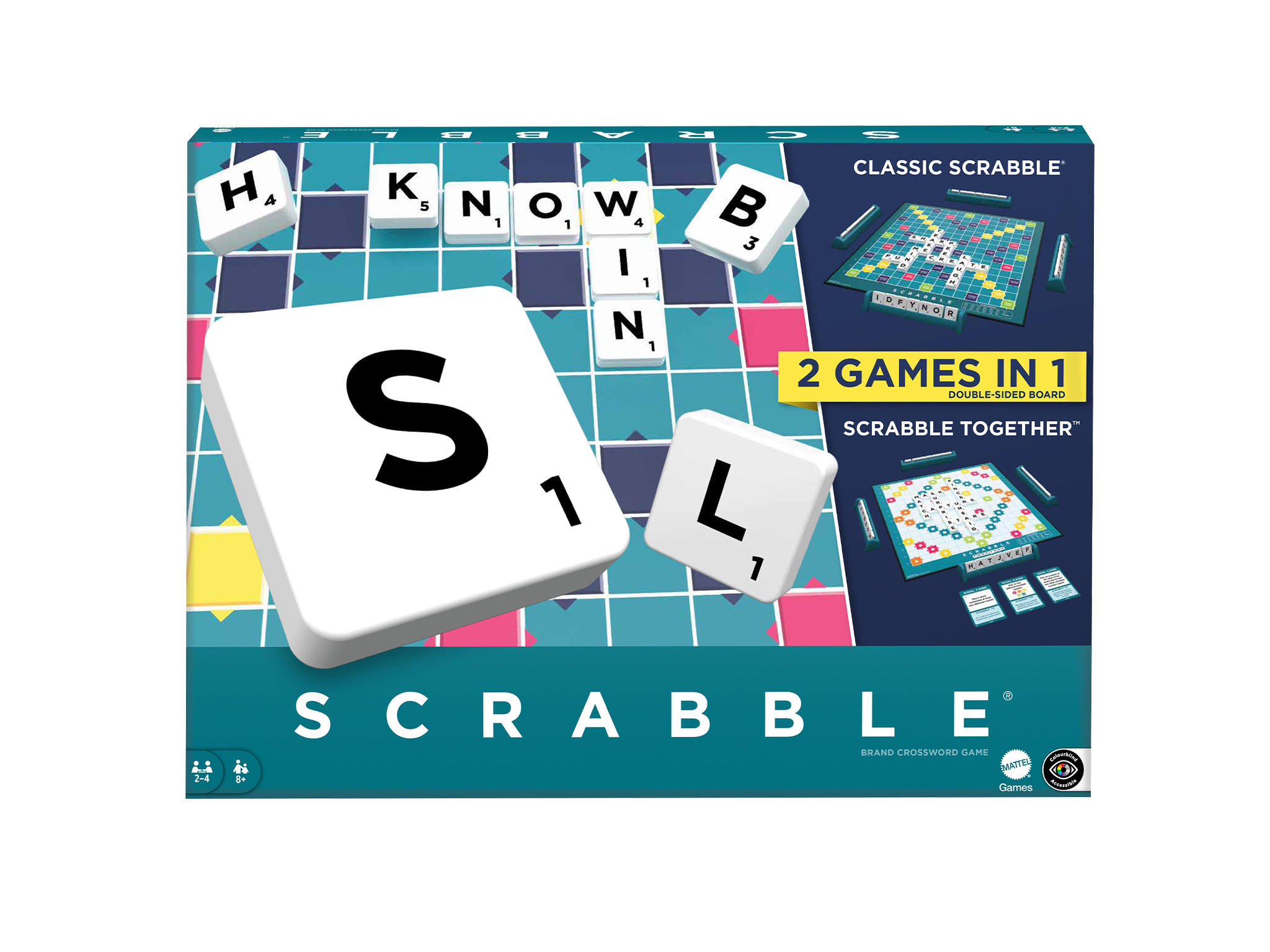
- Best: For value
- Board game style: Word game
- For groups of: 2+
- For ages: 8+
- Extras needed : None
- Why we love it
- You get two games in one
- Take note
- Scrabble Together is quicker to play than the original
Scrabble has been sold in the UK since the 1950s and has since become a household name. So, the news that Mattel was to launch a new collaborative version of the crossword game in 2024 was met with mixed reviews from die-hard fans.
Scrabble Together is now on the underside of the original game, and instead of scoring points for creating words, you work together to win goal cards – each of which comes with a challenge. Complete 20 goal cards and you win the game – together – or fail to complete them and you all lose.
We had an equal mix of testers who preferred the new vs the old game, but ultimately you’re now getting two games for the price of one – which is definitely no bad thing.
Ticket to Ride
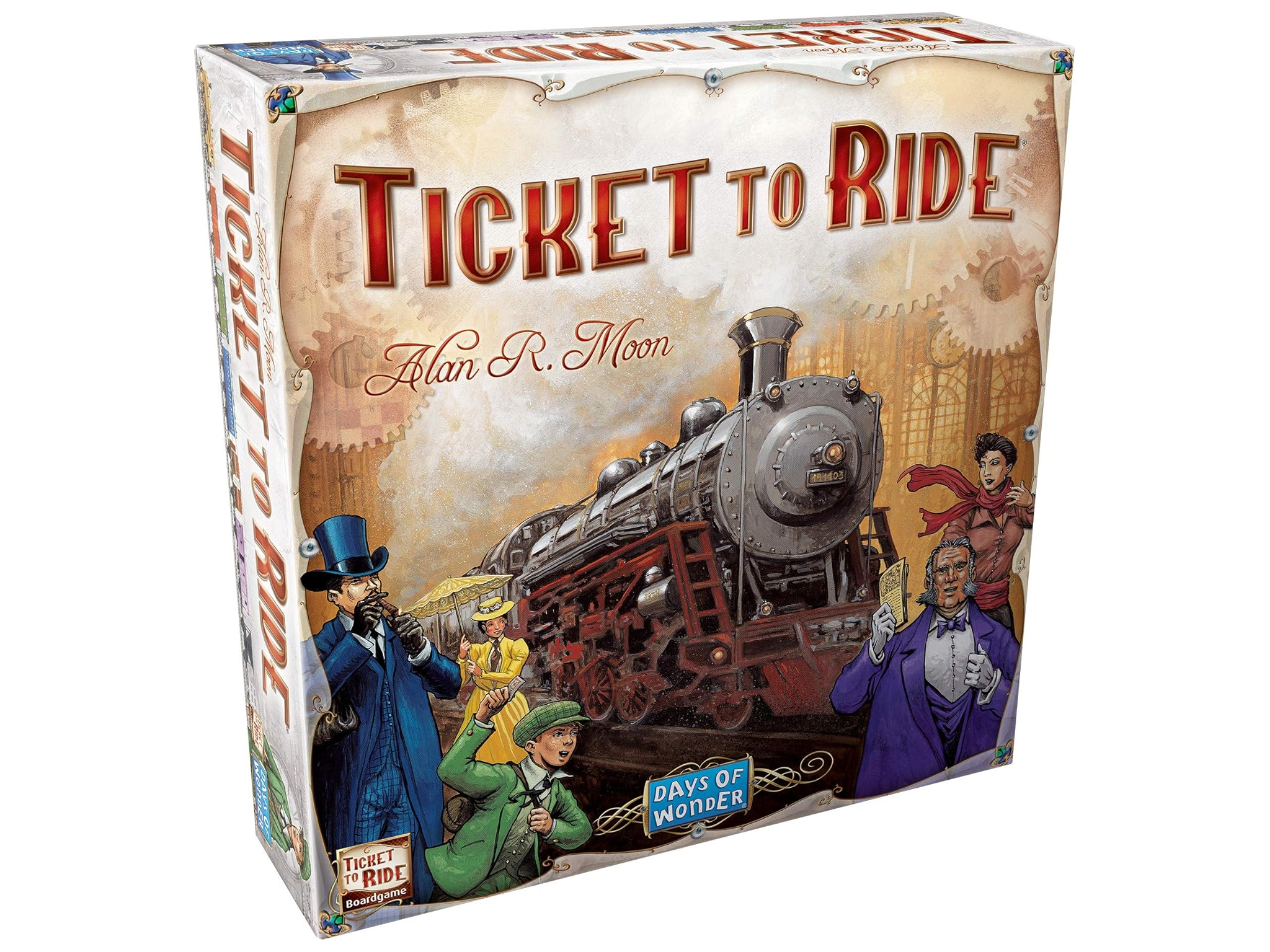
- Best: For a challenge
- Board game style: Strategy
- For groups of: 2-5
- For ages: 8+
- Extras needed : None
- Why we love it
- Feels like a proper board game
- Take note
- It doesn’t work as well with two players
There’s a little bit of setting up and rule-reading involved with Ticket to Ride, but it becomes infinitely easier when you’ve played it once, so it’s worth persevering with. It’s for ages 8+ and our 10-year-old tester actually won the game on the first go.
The game itself reminded us of Catan, in that everyone is working towards building their own route across the board – this time with trains. The longer the routes you build, the more points you earn, and adding in Destination Tickets – where you try to build a route that connects two cities – ramps things up a notch. We played ours with limited-edition deluxe train sets released to mark the game’s 20th anniversary, and they’d make a nice gift for someone who already owns the game.
Ghost In The Attic
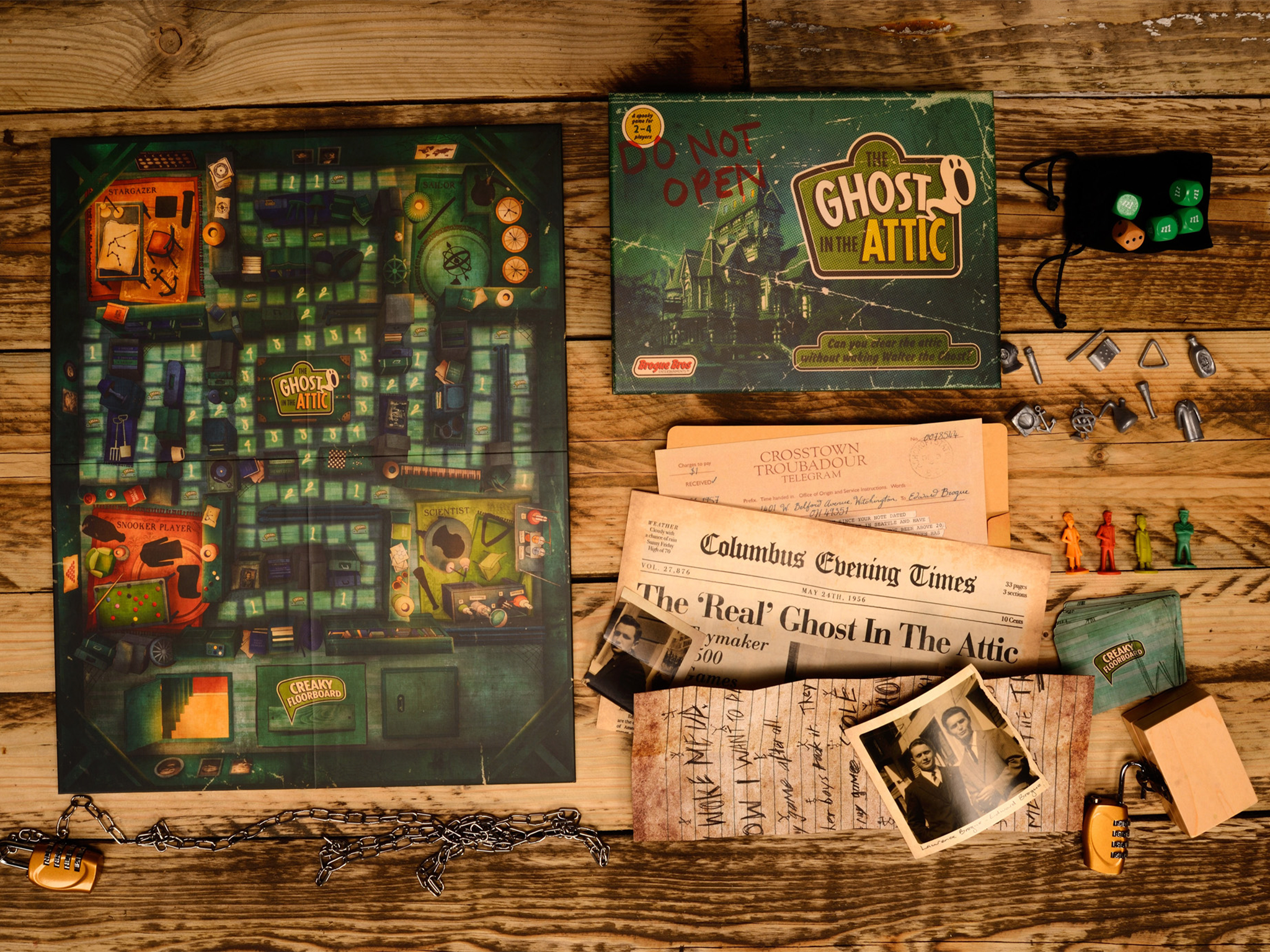
- Best: For a games night
- Board game style: Escape-room puzzle
- For groups of: 1+
- For ages: 14+
- Extras needed: None, but spooky props help
- Why we love it
- It makes a great games night
- Take note
- You’ll need access to the website as part of the game
This game from The Mystery Agency is great if you fancy hosting a game night with a twist. Open the outer box and you’ll find an escape-room-style mystery to solve before your time runs out, with clues and puzzles to solve, evidence to collate and online hints available if you’re stumped.
We won’t give too much away or we’ll spoil the fun, but all our testers got stuck in and really enjoyed the level of detail involved with this game. The only downside is that once you’ve solved it, it’s not the kind of game you can play again – although the board game within the game is re-playable. On the plus side, you can repack it and pass on the fun to a friend.
Alias
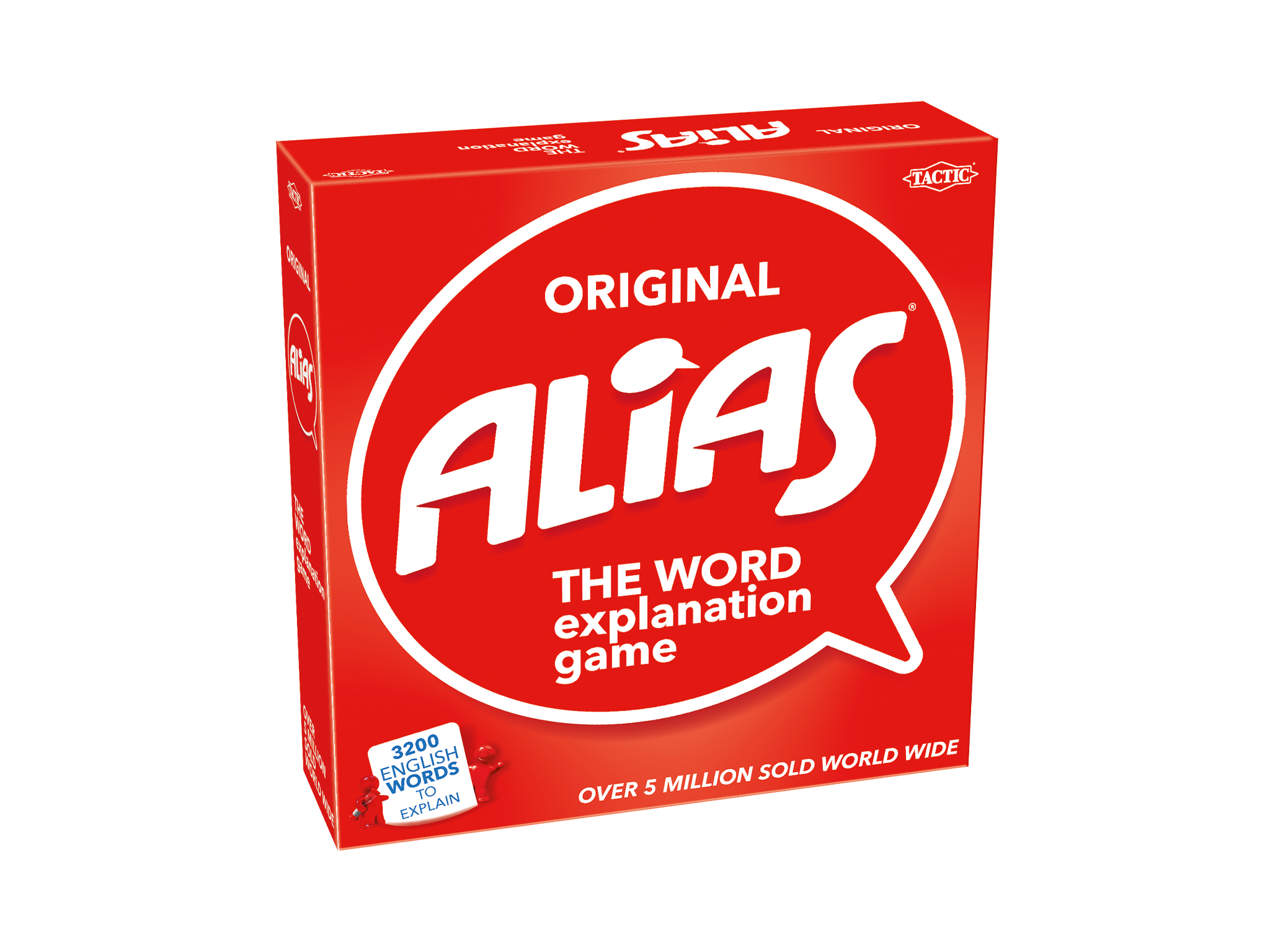
- Best: For fast-paced fun
- Board game style: Word explanation
- For groups of: 4+
- For ages: 10
- Extras needed: None
- Why we love it
- It’s easy to play
- Take note
- It’s quite shouty
Alias isn’t new – the word explanation game was invented decades ago in Finland and has been popular there since the 1990s, which is about when it sprang onto the scene in the UK. But it’s one of those games that doesn’t really date, and it’s just as fun to play as ever.
To play, take a card with words on it, and explain those words to your partner or team without actually saying them. The more words guessed correctly by your team, the further you move your piece on the board. You’ll need two teams of two as a minimum, but it works well with big family groups – just expect plenty of shouting.
13 Beavers
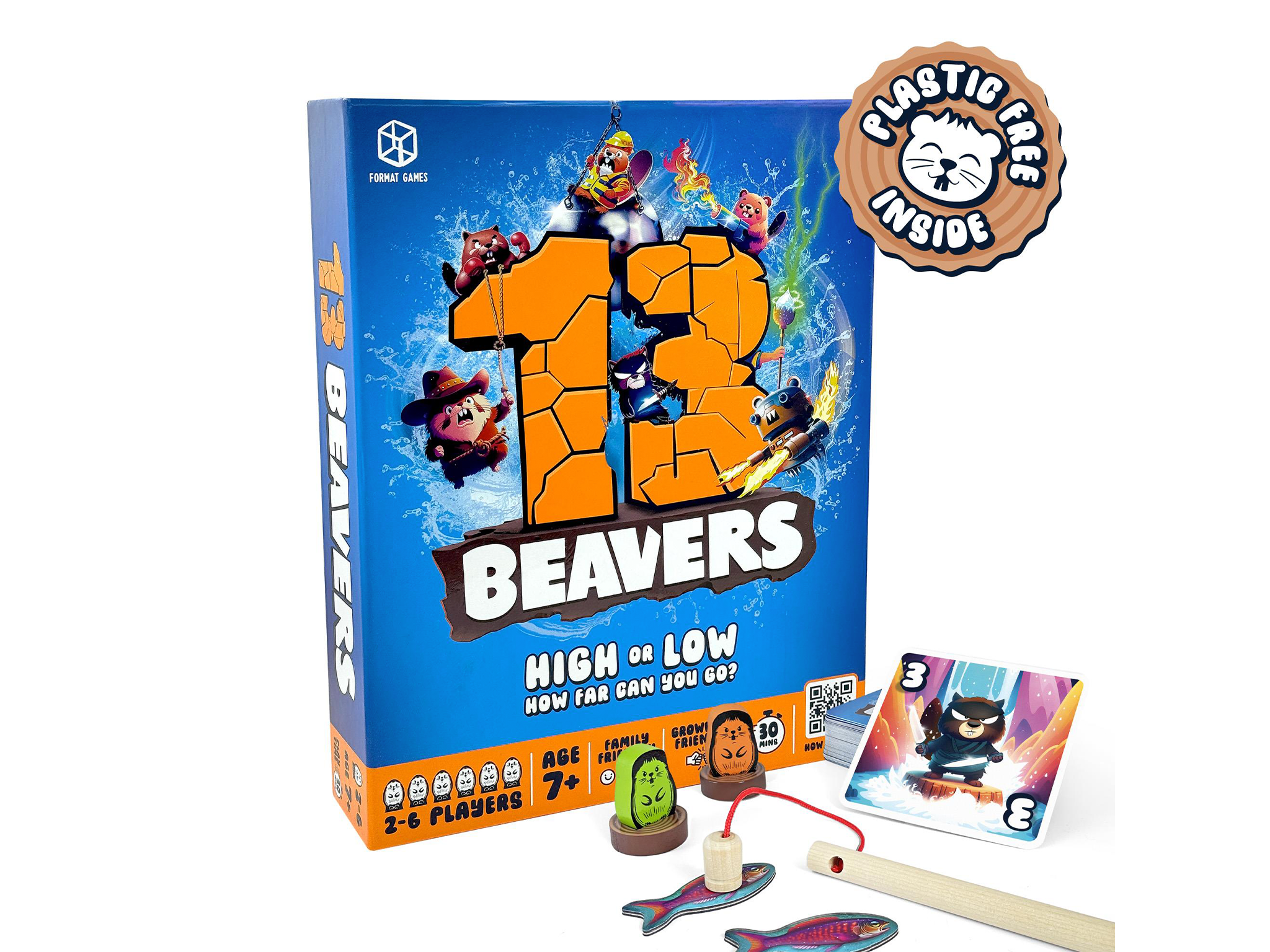
- Best: For kids
- Board game style: Push your luck
- For groups of: 2-6
- For ages: 7+
- Extras needed : None
- Why we love it
- It’s unexpectedly educational
- Take note
- Games don’t last very long
When it comes to educational board games, our younger testers tended to instantly dismiss anything that looked like an extension of school. 13 Beavers, however, turned out to be unexpectedly and unintentionally educational – and looks absolutely nothing like a maths-based game.
It’s essentially a fun version of higher or lower, where you use equal parts probability and luck to guess what the next card drawn from the pile will be. Get it right and your beaver is one step closer to paradise – get it wrong and you’ll go backwards on the board. While it’s not strictly a kids’ game, our 10 and 12-year-old testers particularly liked the bright cartoony graphics and asked to play this one again.
Mycelia
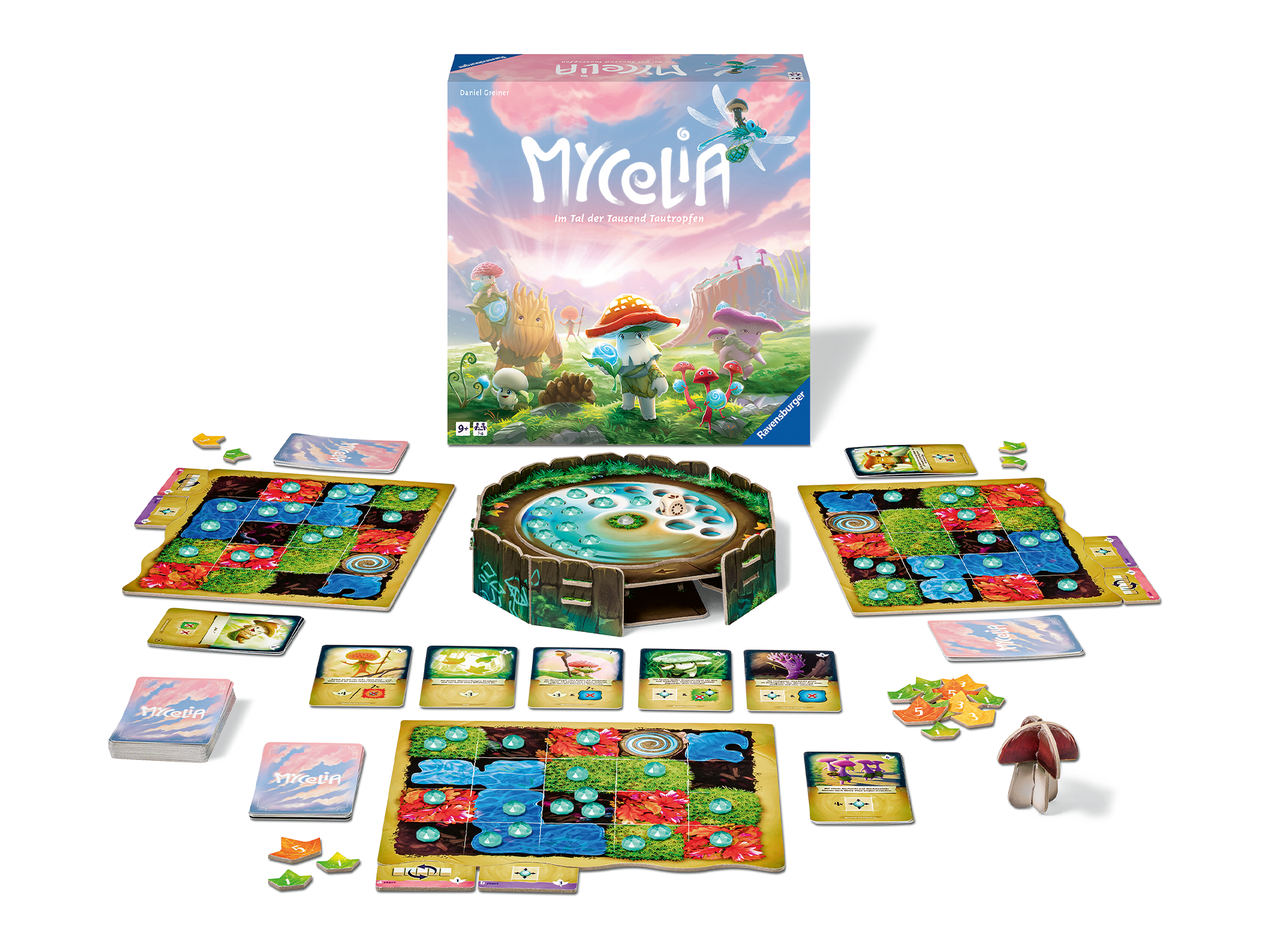
- Best: For something totally different
- Board game style: Deckbuilding
- For groups of: 1-4
- For ages: 9+
- Extras needed : None
- Why we love it
- It’s a light intro to deckbuilding
- Take note
- It’s a bit fiddly to put together
We really liked the magical, whimsical theme of this deckbuilding game from Ravensburger – everything from the theme to the gameplay was quite different to anything else we tested, and the detailed illustrations on the cards went down well with everyone.
The main element of the game involves building a deck of cards, which you use to earn leaves and buy more cards to help you move magical dewdrops off the board. This is one of very few games we found that you can play solo, and we love that it includes four double-sided game boards to keep things interesting.
Hitster

- Best: For music fans
- Board game style: Card game
- For groups of: Two - ten people
- For ages : Adult
- Extras needed: A Spotify account and a smartphone
- Why we love it
- Spans 100 years of music
- Lots of fun and varied game modes
- Take note
- Family-friendly, but some songs may contain naughty language
Think you know your Aretha Franklin from your Ariana Grande? Hitster is the ultimate game for musically-inclined families who love to prove their pop culture prowess. If you reckon you’d ace the BBC’s Hit List, this one’s for you.
Great for two players up to ten, each pack contains 308 music cards with Spotify QR codes that can be scanned using your phone. You don’t need a Spotify Premium account, though. A snippet of a track begins playing every time you scan, and you’ll work alone or co-operatively to guess the year it came out.
You then place the card in your timeline by deciding if the song came before or after another card in play. If you flip the card over and get the year right, you get to keep the card. The winner is the one with the most cards at the end of the round. Great fun, and if you’re a serious music aficionado, you can make it even harder by having to guess the artist and song name.
The verdict: Family board games
Outsmarted ticked all the boxes for us as a truly family friendly board game, and we were impressed at the slick app experience and sheer number of topical questions and categories. For a more traditional board game experience, Catan should be on your list – and if it’s simple party fun you’re after, our vote goes to Herd Mentality.
Looking for something special that little ones will love? Here are the best gifts for five-year-olds
Voucher Codes







